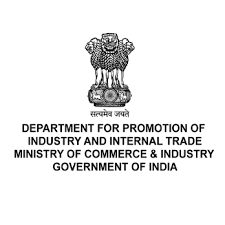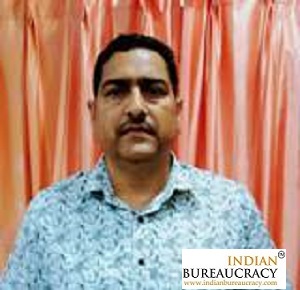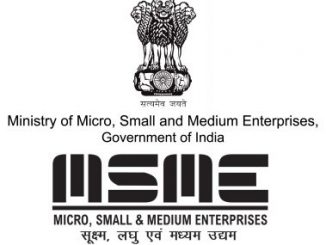
Department for Promotion of Industry and Internal Trade (DPIIT), Ministry of Commerce and Industry held a review meeting on adoption of PM GatiShakti (PMGS) by social sector Ministries in project planning and implementation on 1st August 2023 in New Delhi. After achieving momentum in adoption of PMGS principles in trunk and utility infrastructure planning, the focus is now on expanding outreach of usage of PMGS-National Master Plan (PMGS-NMP) in social sector planning. More than 50 Officers from 22 social sector Ministries/ Departments participated in the meeting.
Secretary, DPIIT, Shri Rajesh Kumar Singh, highlighted the immense utility of PMGS-National Master Plan (PMGS-NMP) in social sector planning and the need for efforts to be made at district level for the benefits to percolate at grassroot level and promote ease of living, and ease of doing business.
Special Secretary (Logistics), DPIIT, Smt. Sumita Dawra emphasized on the importance of PMGS-NMP in Social Sector planning for ease of project planning, improved last mile and first-mile delivery and better access to services. She reiterated that the focus of the meeting is to assess the status of readiness and adoption of PMGS-NMP in social sector planning. This inter alia covered development of portals; uploading of authenticated data along with attributes; data standardization and quality as part of the Quality Improvement Plan (QIP); adoption of comprehensive area development approach to planning.
In the meeting, presentations by 22 Social sector Ministries/Departments were made on the status of the progress in adoption of NMP, measures being taken for data management, i.e., improving the data quality, data uploading, & validation of data, and challenges and issues towards adoption of PM GatiShakti.
Ministry of Skill Development and Entrepreneurship (MSDE) through gap analyser tool identified availability and non-availability of training centers within 10 KM radius of industrial clusters helped in planning under various schemes of MSME with a data-driven decision-making approach.
Ministry of Women and Child Development (MoWCD) is using PMGS for effective planning of locations of Anganwadi Centres (AWCs); a mobile application viz., Poshan Tracker has been developed for the collection of data regarding AWC under the Mission Poshan 2.0. PM GatiShakti is helping focus on AWCs with greater nutritional requirements.
Department of School Education and Literacy (DoSEL) is using the NMP platform for deciding site suitability of new schools. Department of Rural Development has integrated four of its schemes namely Amrit Sarovar Scheme, Pradhan Mantri Gram Sadak Yojana (PMGSY), Pradhan Mantri Awaas Yojana – Gramin (PMAY-G) and Shyama Prasad Mukherji Rurban Mission (SPMRM), with PMGS-NMP, for better implementation through visibility of GIS layers.
For promoting ease of living in urban areas, Ministry of Housing and Urban Affairs (MoHUA) has identified and integrated 14 Data Layers with NMP, pertaining to projects and schemes like Urban Transport, Smart Cities Mission, AMRUT city master plans and Central Public Works Department. MoHUA is under process of integrating 230 City Master Plan with PMGS.
As a way ahead, action points were emphasized for necessary action by Social sector Ministries for wider adoption of the National Master Plan (NMP) in social sector planning. First, integration of essential data layers with the National Master Plan (NMP), to be completed in mission mode with Standard Operating Procedures (SOPs) for the Quality Improvement Plan (QIP) and data management to be developed and implemented by each Social Sector Ministry. Second, list of Schemes/ programs to be identified that can be integrated with PMGS for effective implementation. Third, promote wider adoption of PMGS in social sector planning for last and first mile delivery and improved access to services, duly involving field level functionaries.
As of date, sixteen Social Sector Ministries/ Departments have been fully onboarded onto PMGS-NMP, with individual portals developed and integrated with the NMP. These include M/o Rural Development, D/o Health and Family Welfare, D/o Health Research, M/o Panchayati Raj, D/o Post, D/o School Education and Literacy, D/o Higher Education, M/o Culture, M/o Housing and Urban Affairs, M/o Women and Child Development, M/o Tribal Affairs, D/o Youth Affairs, D/o Sports, M/o Skill Development and Entrepreneurship, M/o Tourism, M/o AYUSH. On boarding of six more Ministries/Departments including D/o Social Justice & Empowerment, D/o Empowerment of Person with Disabilities, M/o Minority Affairs, D/o Drinking Water & Sanitation, D/o Water Resources, River Development & Ganga Rejuvenation, and M/o Labour & Employment, is under progress.
So far 87 data layers related to infrastructure assets, such as primary health centres, dump sites, primary and secondary schools, colleges, district hospitals, health sub-centres, public toilets, Anganwadi centres, fair price shops, Amrit sarovars, and dairy locations, etc., of these twenty-two Ministries, have been mapped on NMP.







Leave a Reply
You must be logged in to post a comment.